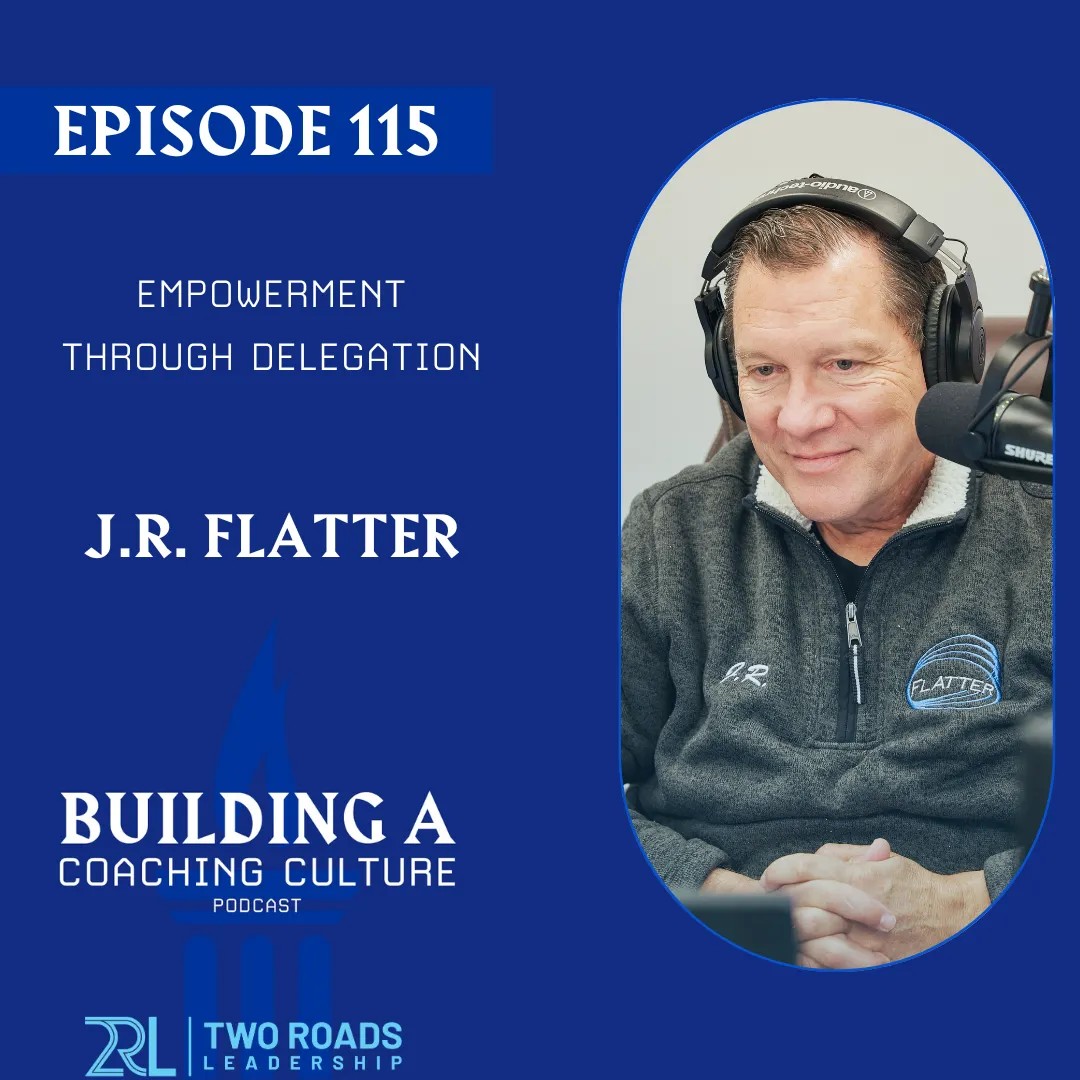Do you know how leaders can overcome common challenges or barriers to delegation, such as tendencies towards micromanagement or a lack of trust in team members?
In this episode, J.R. and Lucas Flatter discuss principles and strategies for empowering teams, delegating effectively, promoting growth mindsets, and creating environments that enable individuals and organizations to reach their full potential. If you're a leader striving to get out of the weeds and maximize your impact, this insightful conversation on the power of delegation is one you won't want to miss.
Key topics covered include:
- The importance of delegating based on individual strengths and potential growth.
- What are the barriers to effective delegation?
- The Role and Impact of a Coach.
- How to find the right mix between providing enough context for tasks and letting individuals solve problems?
Building a Coaching Culture is presented by Two Roads Leadership
Produced, edited, and published by Make More Media
Episode Links
J.R. Flatter
Founder of Two Roads Leadership
Lucas Flatter
Resources
2RL 4 day Coach Certification Bootcamp
2RL ICF-Approved Coach Certifications and Trainings
Transcript
Automatic Transcription - please excuse any errors

